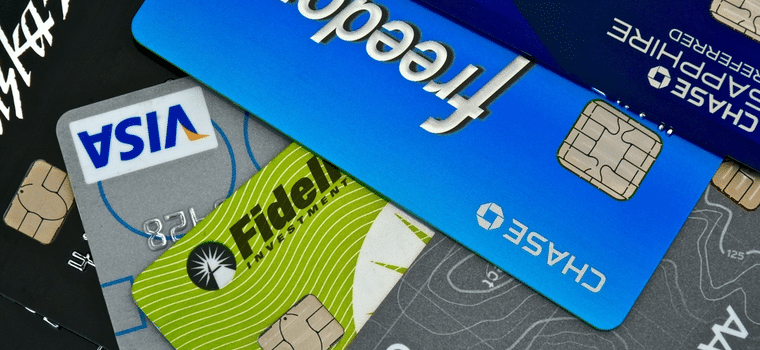The easiest way to stop getting credit card offers in the mail is to simply opt-out online or by phone through OptOutPrescreen.com. This product is a joint offering through Experian, Equifax, and TransUnion to allow consumers to opt-out of offers, as required by the Fair Credit Reporting Act (FCRA).
Call 1 (888) 5-OPTOUT (567-8688) or submit a form at www.optoutprescreen.com and you’ll stop receiving preapproved credit card offers within a short time.
Opting out could save you up to 8 months of your life sorting through junk mail. According to the Sightline Institute, Americans receive an average of 41 pounds of junk mail per year.
So if you’re ready to stop getting credit card offers in the mail, email and over the phone, look into these approaches to halt them.
How Do I Stop Receiving Preapproved Credit Card Offers?
If you’re fed up with the junk mail, here are the 5 ways to stop credit card offers:
1. Notify the credit bureaus:
Two quick opt-out options are to call the opt-out phone number at 1-888-5-OPTOUT or visit www.optoutprescreen.com. You can opt-out permanently by printing and mailing the “Permanent Opt-Out Election Form” found on the Opt-Out Prescreen website. Otherwise, opting-out only lasts for 5 years.
2. Instruct the Credit Bureaus to Protect Your Information:
The Federal Trade Commission (FTC) advises that you send a letter to the major credit bureaus requesting them not to share your personal information with anyone. Include your name, current address, social security number, and date of birth so they can reference your account.
When your name is removed from these lists, credit card companies shouldn’t have your address to send you unsolicited mail. Locking down your credit report won’t stop all credit card offers, as companies you already do business with will still have access to your contact information.
Send your requests to:
Experian Opt-Out
P.O. Box 919
Allen, TX 75013
TransUnion Opt-Out Request
P.O. Box 505
Woodlyn, PA 19094
Equifax Information Services LLC
P.O. Box 740123
Atlanta, GA 30374
3. Use the Direct Marketing Association’s (DMA) mail preference service:
The DMA is another place marketers go to for targeted mailing lists. You can add your name to the DMA’s “do not mail list” here to avoid having your address targeted. The service costs $2 and is valid for 10 years.
4. Use the DMAs email preference service:
If your email inbox is flooded with junk mail like your home mailbox, you may want to try the email preference service at the DMA. You can enter up to three email addresses and your preferences are good for three years.
Additionally, you can set up spam filters in your email program to block messages from specific email addresses.
5. Stop telemarketers:
Put a stop to credit card offers you receive over the phone by registering for free with the National Do Not Call Registry. Call 888-382-1222 or visit www.donotcall.gov to reduce or possibly even eliminate all telemarketing calls.
Contact the FTC if you are still receiving junk mail, even after your efforts: Remember, you may still receive offers from companies you already do business with. Allow time for the changes to take place as some companies only update mailing lists quarterly.
Benefits of Opting Out
Opting out may significantly reduce the credit card mail promotions you receive, which may save you a lot of wasted time and paper. Since there are no credit card offers in your mailbox, it’s less likely that a thief can steal your preapproved credit card offer and apply for a card in your name.
Another benefit is less temptation to take on debt. A mailbox without preapproved credit card offers may be a big benefit to anyone who has trouble controlling their spending.
Before opting out of credit card offers in the mail, note that you may miss out on offers that are not available elsewhere. For example, you might miss favorable terms or signup bonuses that are exclusive to the mail promotion. Also, these offers are an easy source of credit as you are already prequalified.
Just because you stop receiving credit card offers in the mail doesn’t mean you can’t find the best card for you.
Why Do I Receive so Many Unsolicited Credit Card Offers in the Mail?
The three credit bureaus (Equifax, Experian and Transunion) collect extensive information about you and millions of other consumers. They sell this information in various forms to interested third parties, such as credit card companies. For example, they may a prescreened list of consumers that fit key demographic criteria.
Credit card companies find this information very useful because it helps them identify consumers who are most likely to become their customers. They provide the credit bureaus with detailed demographic information on the type of consumers they want to target and pay them for their reports and lists.
You are likely receiving mail and email from creditors because you fit their target demographic ended up on a prescreened offer list. Under the Fair Credit Reporting Act, this is a permissible purpose use of a credit report.
How to Handle Credit Card Offers in Email
As mentioned above, you can opt-out of email offers using the DMAs email service, or by setting up email filters. Another effective technique is to block junk email, similar to how you block callers on your smartphone. In Gmail, for example, you can open any email, click on “More” in the upper right corner, and then select “Block [sender].”
The most important thing to know about email credit card offers is that it is difficult to distinguish legitimate offers from phishing scams. For that reason, don’t apply for a credit card after clicking the email offer, as it may be a scam to snag your personal information.
The Bottom Line
If you’re receiving too many unsolicited credit card offers in the mail, you can always opt-out. Use the instructions above to reduce or even eliminate offers through the mail, over the phone, or by emails.




